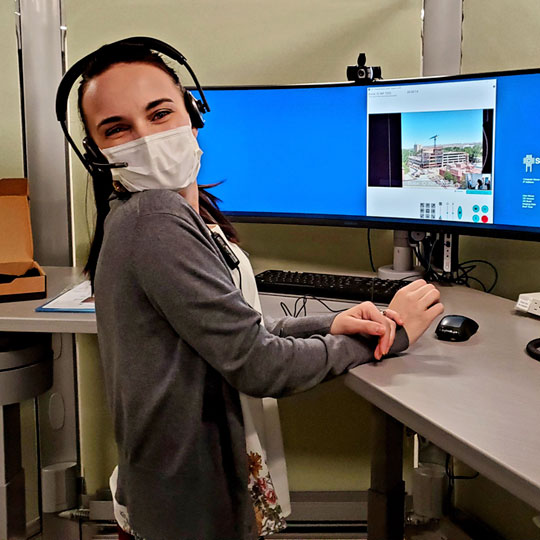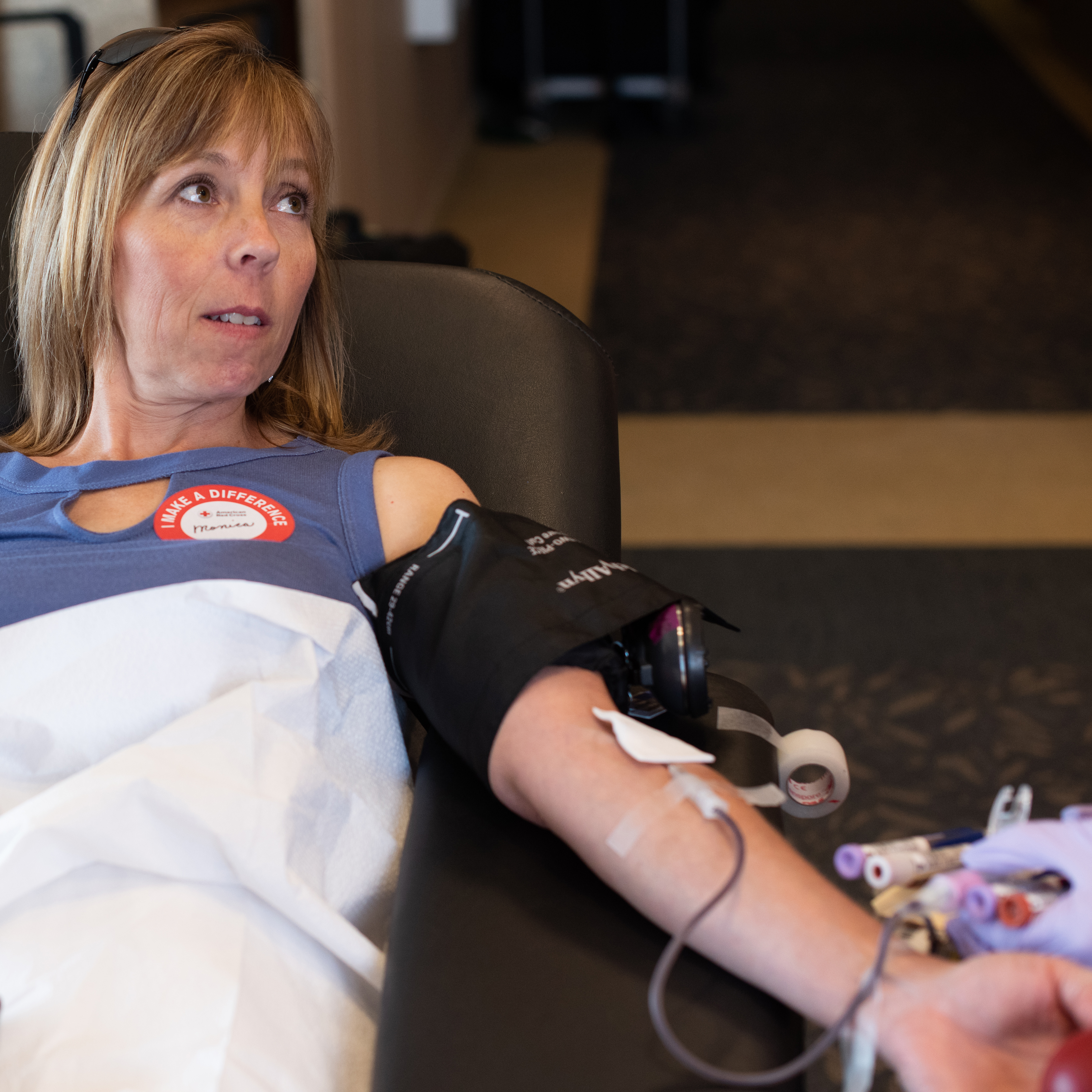
St. Luke's is dedicated to offering the best treatment options possible. To achieve this, we partner with pharmaceutical and medical companies in clinical trials to test new drugs and devices which enhance patient care and expand the knowledge base of our providers.
Additionally, the Applied Research Division plays a crucial role in these efforts by developing practical solutions for real-world issues in health and health care. Research may focus on the development of new products, treatments, technologies, or processes. A strong emphasis is placed on how to best translate results into practice and disseminate findings for maximal impact in the community.
St. Luke's research ensures that innovative treatments and top care are accessible to our communities. Your participation can help researchers obtain valuable information to share with other medical and research professionals close to home and around the world, helping people today and tomorrow.
Information for Patients About Research Studies and Clinical Trials
-
Points to consider before participating in research
-
- Participation is voluntary. If you decide not to participate, it will not impact the medical care you receive at St. Luke's.
- Research is not the same as medical care. Participating in a research study may or may not help you personally, but could help others in the future.
- Joining a research study involves risks and benefits. It's important for you to ask questions to make sure you understand both.
- A group of independent scientists, non-scientists, and community members (called an institutional review board or IRB) reviews the research study before it starts to make sure it is safe for patients.
-
-
What are clinical trials?
-
- A type of clinical research study that involves people
- A way to test new drugs, devices, and equipment to find new ways to treat and help patients
- An experiment to see if new drugs or treatments are safe and effective
- A process that can sometimes take many years to complete
-
-
Why is clinical research Important?
-
- Clinical trials allow us to test the safety and effectiveness of new drugs and devices
- It also allows us to explore new ways to use existing treatments
- The knowledge gained through clinical research allows us to improve treatments for future patients
- It is essential to advancing health care; without it, there can be no new treatments
-
-
What are research participants commonly asked to do during a study?
-
There are different things you may be asked to do depending on the goals of the study. Some common activities are:
- Completing questionnaires
- Providing samples such as blood or saliva
- Taking an experimental drug or using an experimental device
- Allowing access to your medical records
- Taking part in an interview, alone or with a group
-
There are different things you may be asked to do depending on the goals of the study. Some common activities are:
Areas of Research
-

Applied Research
Discovering new health knowledge that can be used in real-life settings to change policy, practice, behavior, and the environment.
Read More -

Biorepository Research
St. Luke’s Biorepository was founded to provide high quality human biospecimens with the desire to further medical research.
Read More -

Cancer Research Studies for Adults
St. Luke's Cancer Institute offers access to a wide variety of clinical trials focusing on improved cure rates, more effective treatments with fewer side effects, lengthened patient survival, and enhanced quality of life.
Read More -

Pediatric Cancer Research Studies
St. Luke’s has several active pediatric cancer research studies. If you’re interested in one of these studies, please contact our research coordinator.Read More -

Cardiology Research Studies
Our clinical research studies have identified risk factors, behavioral changes, and treatments that have saved lives and improved patients' quality of life.Read More -

Children's Specialties Research
Our team supports the clinical research interests of the St. Luke’s Children’s Hospital, including the pediatric hospitalist program, investigator-initiated clinical trials, and research registries.
Read More -

Concussion Research
The St. Luke's Sports Medicine Concussion Clinic leads various research projects in order to better serve our patients and their families. We partner with St. Luke’s applied research department, Boise State University, and various youth sport organizations.Read More -

Cystic Fibrosis Research
The St. Luke's Cystic Fibrosis Center of Idaho is proud to participate in research studies aimed at advancing care for patients with cystic fibrosis.Read More -

Hemophilia and Blood Disorders Research
St. Luke’s offers the opportunity to participate in clinical trials through the American Thrombosis & Hemostasis Network (ATHN), as well as multiple pharmaceutical companies.
Read More -

Neurology Research
St. Luke’s is currently developing opportunities for patients to participate in clinical trials for various neurological issues.Read More -

Nursing Research
All St. Luke's nurses are supported through the Center for Nursing Excellence to develop research questions and pursue formal human subjects research, either through our Nursing Research and EBP Fellowship program or through individually mentored research initiatives.Read More -

Orthopedics and Sports Medicine Research
Our team studies various orthopedic conditions and sports-related injuries, such as the treatment of osteoarthritis of large and small joints, prevention of deep vein thrombosis after knee or hip replacement surgery and, most currently, the treatment of cartilage injuries in the knee.Read More -

Rheumatology Research
Our research team works with pharmaceutical sponsors to conduct research in a variety of therapeutic areas under the global banner of auto-immune disorders.
Read More -

Wound Care Research
The goal for wound care research is to discover methods that will achieve the most expeditious closure of wounds possible.Read More
Support Local Research Opportunities
Your generosity will change lives.



